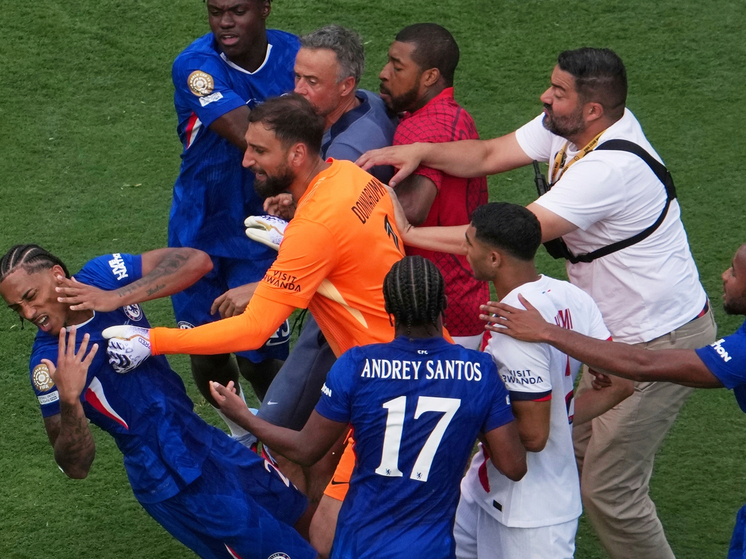The confetti has settled, the trophies are polished, and the celebratory chants have faded. Chelsea Football Club, adorned with the prestigious FIFA Club World Cup, now faces a question as formidable as any European giant: Can this newly crowned global champion conquer the domestic Premier League?
The roar of triumph echoes, yet the path to English football supremacy is notoriously less a sprint and more a grueling marathon. While the Club World Cup offers a potent surge of momentum, history suggests that translating fleeting glory into sustained domestic dominance is a challenge few master without a bedrock of consistency.
The Gleam of Gold: A Moment of Brilliance
The recent victory, particularly the commanding performance against Paris Saint-Germain, undeniably showcased Chelsea`s immense potential. Enzo Maresca`s tactical blueprint was executed with precision; his squad displayed aggression, organization, and a remarkable fearlessness. It was a performance that had fans and pundits alike waxing lyrical, envisioning a future where such displays become the norm.
Defender Levi Colwill, an academy product steeped in the club`s winning ethos, voiced the team`s belief with unwavering conviction. “We’re definitely capable of doing it,” he declared, echoing the sentiments of a squad energized by recent success. This victory, arguably Chelsea’s most compelling display since their 2020-21 Champions League triumph, served as a powerful reminder of what this young team is capable of when operating at its zenith.
The Cold Shower of Reality: Premier League Pragmatism
However, the Premier League is a relentless beast, unforgiving of inconsistency. Last season, Chelsea concluded their domestic campaign a substantial 15 points adrift of Liverpool, engaged in a scrap for a top-five position rather than leading a title charge. The stark reality is that the superlative performance witnessed in the Club World Cup final was, by their own league standards, an anomaly.
Statistical analysis from the previous Premier League season paints a clear picture: Chelsea did not score enough goals, and while their defensive record (43 conceded) was commendable, it was insufficient to compensate for an attack that often misfired. Their expected goal difference, a telling metric of underlying performance, lagged significantly behind genuine title contenders. The 3-0 demolition of PSG, while brilliant, was atypical; against their fellow top-four rivals last season, Chelsea managed only one win, alongside a draw and four defeats.
The irony is palpable: a performance lauded as championship-calibre on the global stage was, by domestic metrics, an exception rather than the rule.
The Traps of Cup Runs: A Distorted Mirror?
Cup competitions, by their very nature, can occasionally present an embellished narrative of a team`s progress. While Chelsea undeniably dominated the Conference League and navigated the Club World Cup with skill, the draws often provided a favorable route. The path was notably cleared of perennial powerhouses like Manchester City and Inter, replaced by opponents such as Fluminense, a team rated statistically by Opta as being on par with clubs like Coventry City or Elche. This isn`t to diminish Chelsea`s achievement but merely to inject a dose of perspective regarding the caliber of every opponent en route to glory.
The Transfer Conundrum: Investing for Impact
A crucial element in Chelsea`s title aspirations lies in their ongoing transfer strategy. The club has embraced a model of acquiring promising, high-upside young talents. Yet, the question lingers: is this approach sufficient to bridge the gap to the league`s elite?
Consider the attacking options: while Nicolas Jackson has shown flashes of brilliance, his statistical output, when compared to the consistency required of a title-winning striker, leaves room for improvement. The acquisition of players like Joao Pedro or Jamie Gittens, while adding depth, appears to be a pattern of replacing like-for-like, rather than a decisive upgrade that injects undisputed star quality at crucial positions. One might even observe a certain philosophical stubbornness in this approach, particularly when the Club World Cup prize money could theoretically fund a more audacious move.
Imagine, if you will, the impact of a world-class striker (a Victor Osimhen, perhaps), an elite-level center-back to anchor the defense, and a top-tier goalkeeper. Such strategic injections of undisputed quality could transform Chelsea from a team with immense potential into one that ticks every box for a genuine title challenge.
Path Forward: Beyond the Glitters
The foundational pieces are undeniably present. With the likes of Moises Caicedo anchoring the midfield, Cole Palmer providing creative sparks, and talents such as Reece James, Marc Cucurella, and Enzo Fernandez complementing them, Chelsea possesses a formidable core. They are, in essence, not “that” far from entering the Premier League title conversation.
However, the journey from potential to champions demands more than just flashes of brilliance or the allure of new signings. It necessitates relentless consistency, the shrewd application of transfer funds for genuine, impactful upgrades, and the capacity to deliver “atypical” performances on a weekly basis. The Club World Cup victory is a magnificent feather in Chelsea`s cap, a testament to their inherent quality. But to truly be the best team in their homeland, they must now demonstrate that their high watermark is not just a memorable isolated event, but a new standard for sustained excellence.

